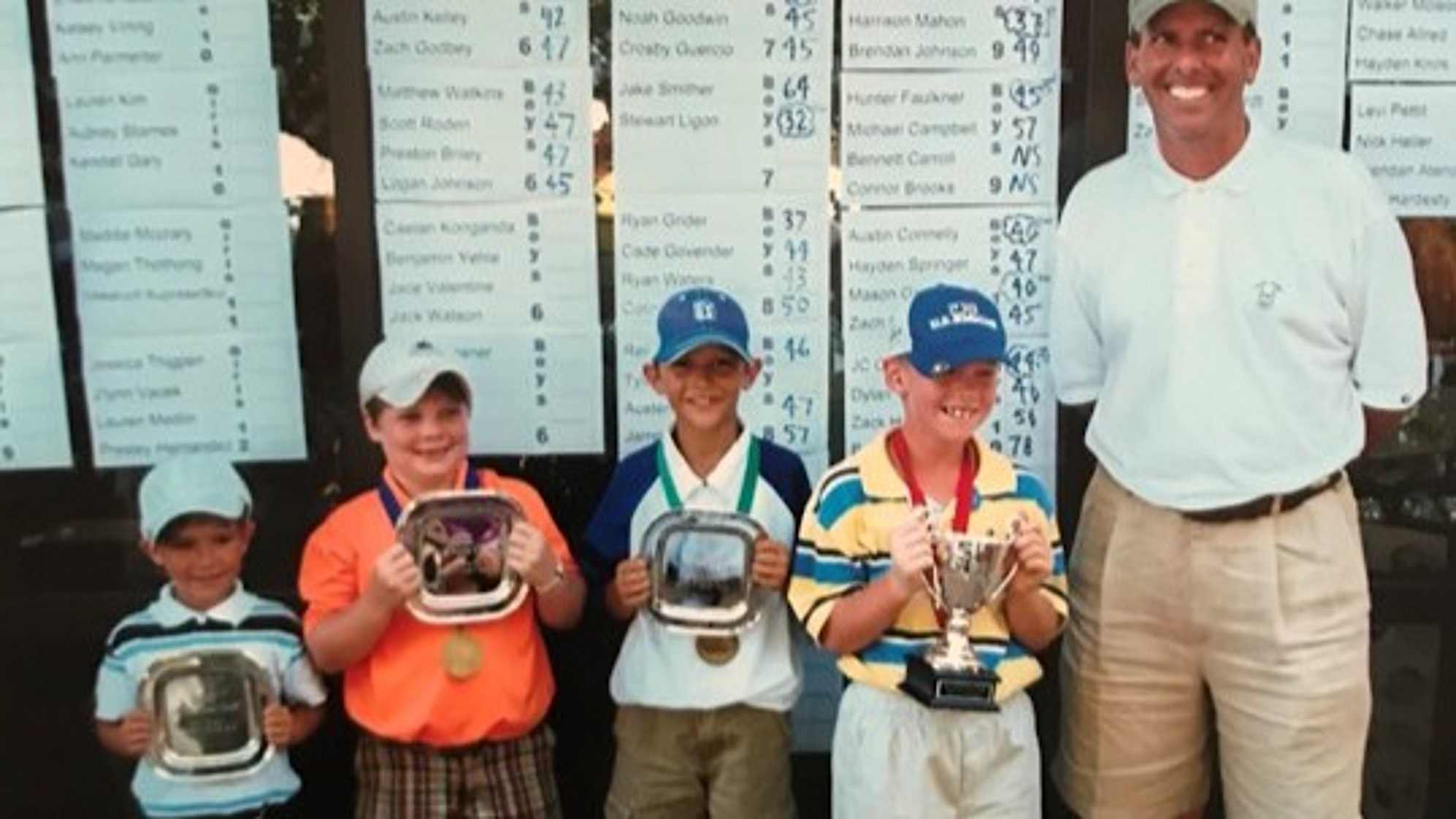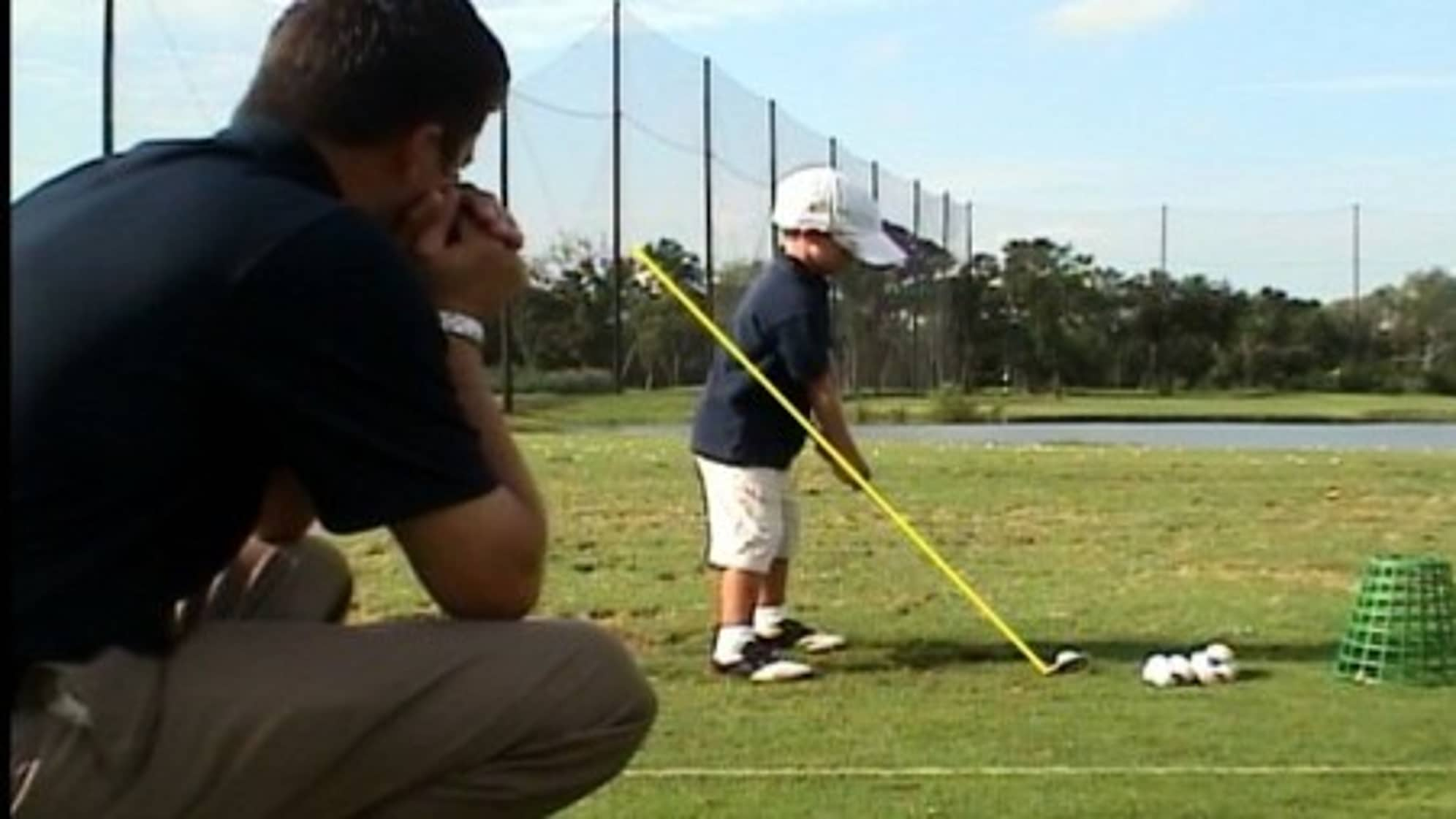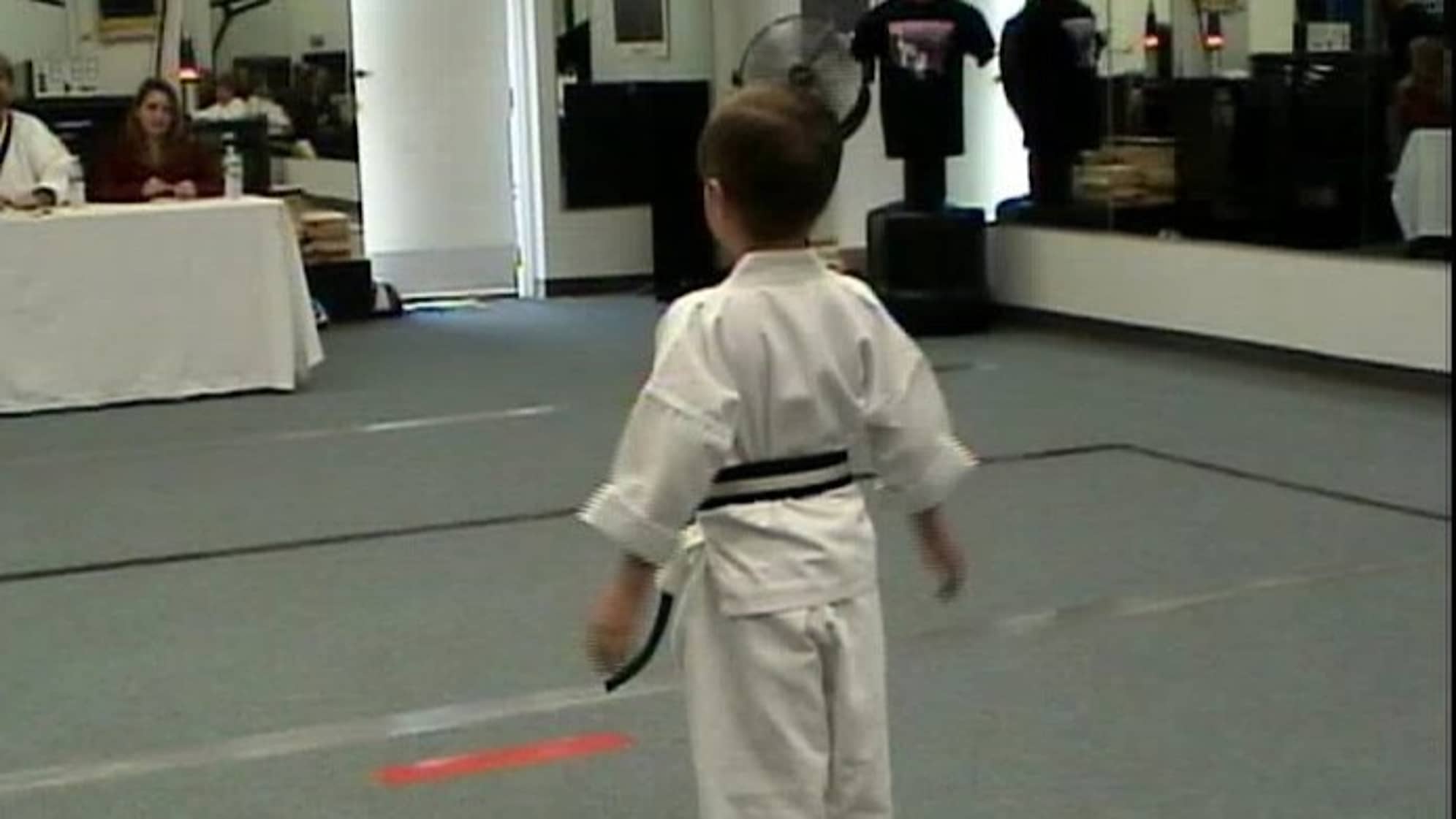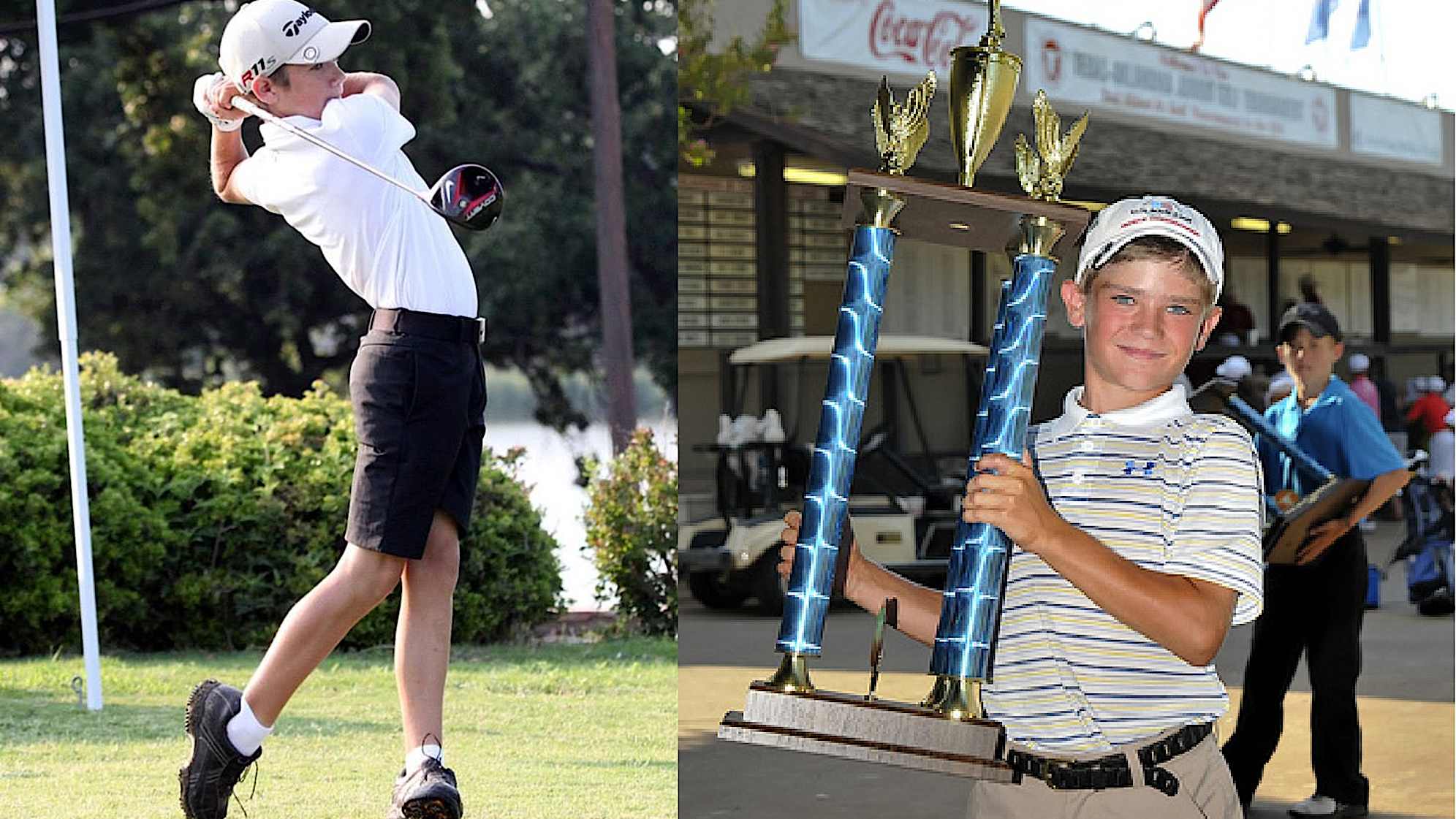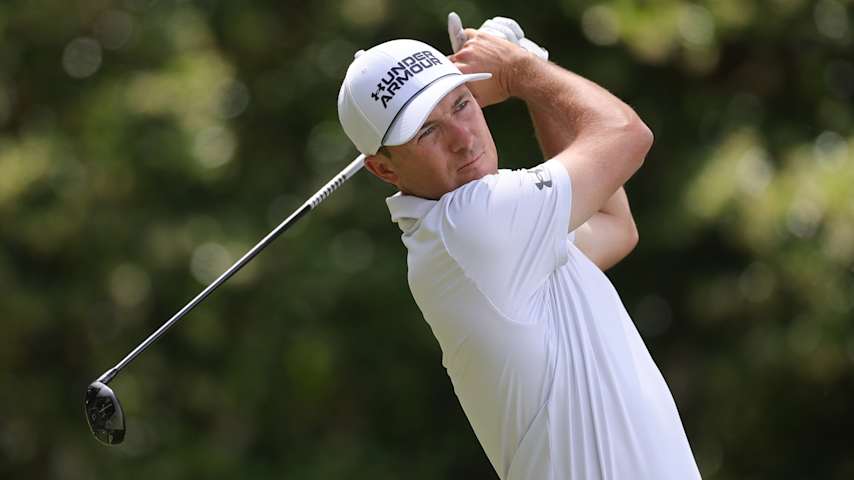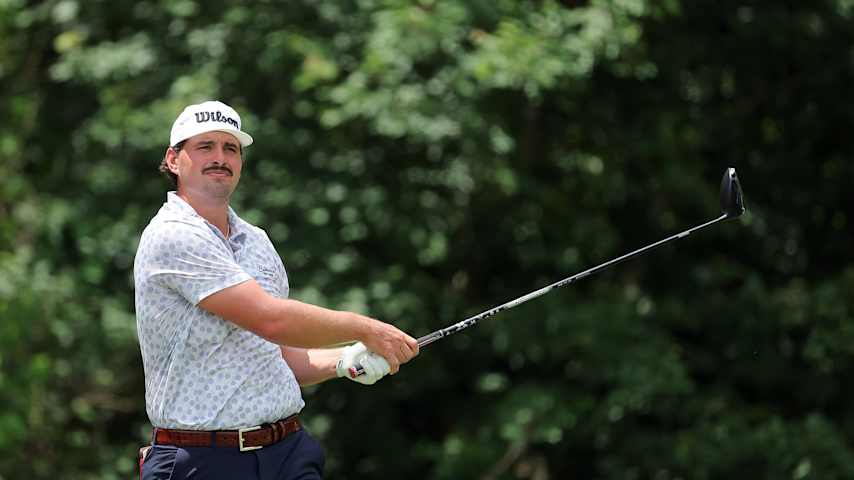Despite 'wild journey,' Noah Goodwin wouldn't change anything about his path to PGA TOUR
9 Min Read

Noah Goodwin overcomes growth hormone deficiency to reach PGA TOUR
Written by Kevin Prise
An elementary school-aged Noah Goodwin was rarely hungry, and his family wasn’t sure why. He was much smaller than his classmates but healthy otherwise, a promising junior golfer with spunk who earned a Taekwondo black belt at 7 years old.
But he had no appetite for breakfast, nor lunch. He’d have a snack at 4 p.m. when his dad would pick him up from school. He enjoyed buttered pasta, but not much else.
“It’s the craziest thing,” Goodwin said. “We tried different medicines to give me an appetite, but none of those worked. That’s when we started looking.”
The answer came at age 9 when Goodwin was diagnosed with growth hormone deficiency (pituitary dwarfism), a condition caused by the pituitary gland failing to manufacture the natural growth hormone. For most of his formative years, he grew at a rate well behind his classmates, ranking in the first percentile in height and weight before gradually moving toward the norm as he injected growth hormone each night for roughly seven years. It didn’t seem the optimal situation for an aspiring professional golfer in an uber-competitive landscape, one where kids hit the ball further by the minute. As a junior golfer, Goodwin and his dad, Jeff, would often develop a modified par to manage expectations (often playing up an age group in junior events). In some cases, his distance goal was to hit his second shot past an opponent’s tee shot.
“It taught me how to be gritty,” Goodwin said.
Goodwin, 24, is now a PGA TOUR rookie, competing in his home event this week at THE CJ CUP Byron Nelson. The Dallas native stands 5-foot-10, 150 pounds – slightly on the leaner side but certainly not short. Lack of distance shaped his development in golf, but it’s no longer a liability (he ranks middle-of-the-pack in TOUR Driving Distance).
Goodwin earned his card in dramatic fashion, watching in the clubhouse at the Korn Ferry Tour season finale as the final group reached the season’s final hole. It was out of his hands; Goodwin needed two players to drain mid-range putts at the 18th hole to secure the 30th spot on the Korn Ferry Tour Points List (30 cards were available). Both players made their putts, and Goodwin was immediately overcome with emotion as his journey to golf’s biggest stage was complete.
“I got lucky, but it takes a lot of luck to play this game, and it takes a lot of luck to get where we’re going, so I’m just grateful,” Goodwin said at the time. “Seven-year-old me would be really proud right now.”
On paper, Goodwin’s ascent to the PGA TOUR seemed inevitable. He won the 2017 U.S. Junior Amateur, a year after finishing runner-up to Min Woo Lee, and was a two-time AJGA Rolex Junior Player of the Year (2016 and 2017). He finished No. 12 on the 2022 PGA TOUR University Ranking, won twice on PGA TOUR Canada that summer, and needed just two Korn Ferry Tour seasons to reach the game’s highest level.
But considering his backstory, the Southern Methodist alum doesn’t take anything for granted in golf or life. Limited strength and distance as a junior golfer forced him to find advantages elsewhere. He’d play up an age group to push himself – often meaning a longer course and several par 4s he couldn’t reach in two. Knowing he couldn’t overpower a golf course, Goodwin developed an elite short game – if his scores weren’t competitive, rather than blaming his lack of distance, he grew hungrier to improve his skill around the greens.
He might not have realized it at the time, but growth hormone deficiency turned out to be Goodwin’s superpower. It let him divest from the bigger context and fall in love with each day as its own opportunity. It led him to the PGA TOUR.
“You’re always going to be a little bit (self-conscious about being small), but it was out of my control,” Goodwin said. “I couldn’t do anything, so I think you reach an age where you realize, hey, I can’t do anything about this, there’s no point in worrying about it or attaching emotions or feelings to it. It is what it is. If I could have grown, I would have; it would have been the much easier choice.
“Things just happen, and we just roll with the punches, and you wake up the next day and do it all over again.”
While it’s possible for competitiveness to be learned over time, Goodwin’s is ingrained. Within two months of starting Taekwondo lessons at age 3, he told his dad that he wanted to become a black belt. He did so at age 7. Goodwin played Tee-ball and enjoyed the team element, unfazed by his size disadvantage, but he quickly gravitated to golf – which he started as a toddler, carrying a plastic club around the house and hitting plastic balls in the family’s backyard.
“There aren’t many sports that a very, very small child can play,” Goodwin said. “Basketball is out, football is out, a lot of the team sports are out, and I just fell in love with golf … It was really nice to be able to beat guys who are three times my size out on the golf course, and I loved that. My dad got me into it, and from there it was an addiction to wanting to see how good I could get.”
At one U.S. Kids Golf tournament, Goodwin was “throwing up sick,” his dad Jeff recalled. He would hit a shot, walk over to the edge of the fairway, throw up, hit the next shot, and throw up again. Jeff Goodwin was caddying and told his son it was OK to withdraw so they could go home and visit an urgent care facility.
“He refused,” Jeff Goodwin said. “He was adamant about finishing the round, which he did. Honestly, that's not normal behavior.”
From age 9 to 16, Goodwin took a nightly injection of growth hormone, which dually improved his appetite and helped him grow. It was a steady but gradual process, as Goodwin’s distance disadvantage forced him to get creative on the golf course well into his teen years: In one tournament qualifier in Abilene, Texas (he estimates he was 14), Goodwin was faced with a nearly 200-yard carry on a par-4 tee shot. He didn’t have it, so he hit a lob wedge off the tee and a 3-wood up toward the green. He made bogey at worst, as he remembers, and proceeded with his round.
“Little things like that, it teaches you how to fight,” Goodwin said. “There are a million different ways to play golf. We all have our own identity and DNA with it. I just hit the golf ball short (at the time), but I guess you’ve still got to find a way at the end of the day.”
In his later high school years, Goodwin’s long game caught up, which allowed him to fully maximize his elite short game and stack up junior golf accolades. It has now been eight years since he stopped taking the nightly injection, but he remembers the routine well. He would sit on his leg and press a button on a machine “that looked like a high-tech diabetes thing” for the needle to enter.
“It would do everything for me, and I would lift it up, and it would already have retracted the needle out,” he said. He had a doctor’s appointment every three months. He had X-rays every six months, tracking his bones and growth plates, until his growth plates closed at age 16 – “and you’re capped out and see you later.”
After finishing No. 110 on the 2023 Korn Ferry Tour standings as a rookie, Goodwin returned to Q-School and needed to shoot 67 or better on the final day of Second Stage to retain his status. He shot 64 with his dad on the bag, then finished 14th at Final Stage (also with his dad on the bag) to earn guaranteed starts in 2024. Armed with better knowledge of the Korn Ferry Tour – how to travel, where to stay, different courses’ nuances – he notched six top-10 finishes in 2024 and gutted out a 1-over 73 on the season’s final day (rallying from a 4-over start through seven holes) to earn the final PGA TOUR card available.
It wasn’t easy. It was scrappy. Goodwin, who told his dad at age 8 that he wanted to play on the PGA TOUR, wouldn’t want it any other way.
“It’s been a wild journey ever since I decided I wanted to play this game for a living,” said Goodwin while holding back tears. “There are a lot of sleepless nights; it’s also a lot of great nights. Just proud for fighting. … We knew it was never going to be easy. We live for the fight. We live for giving ourselves a chance.”

Noah Goodwin (middle) emotional at the 2024 Korn Ferry Tour card ceremony while receiving his PGA TOUR card. (Tracy Wilcox/PGA TOUR)
If he needed tunnel vision when he was younger, Goodwin can now think back to crossroads moments and revel in life’s bigger picture. In his rookie interview at PGA TOUR Studios last fall, he vividly described a moment in a college event at Bandon Dunes where he reached a coastline hole amidst a violent rainstorm, deciding to lie across the ground – while waiting for the tee to clear – as the rain blew sideways over his head.
“It looked like something out of a movie,” he said, having found beauty in terrible golf conditions.
He recalled a round at the Honors Golf Club Dallas (now Maridoe Golf Club) as an 11-year-old, where Jordan Spieth (then a University of Texas freshman) allowed Goodwin and his dad to play through. Before they played on, though, Spieth called Goodwin over and told him that he liked his golf swing. “Little things like that go a long way,” Goodwin said.
This memory with Spieth often comes to mind for Jeff Goodwin when he sees his son signing for young fans. It brings things full circle, a reminder that today is the most important day. His son, now a PGA TOUR rookie, shares the sentiment.
“Every moment, you get to experience something new that you’ve never noticed before,” Goodwin said in his rookie interview. “Every day is a brand-new day; there aren’t two days that are remotely close to each other. Even though they might feel mundane or repetitive, every day is so new.
“This life, it’s like golf. It’s perfectly imperfect, and it always leaves you guessing; you never know what to expect. As soon as you think you’ve got it figured out, it just comes up and slaps you across the head. You get to meet somebody new every day. Maybe you hear a song that changes your entire mood, or you see a sign while driving that makes you smile.
“Go find your happiness. It’s not going to chase you. You’ve got to go after it and go get it.”
By relishing the small moments, Goodwin reached the biggest stage.













